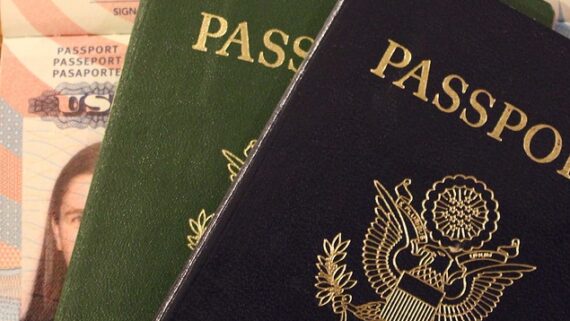Diamond Industry – Taxation
The Diamond industry is one of Israel’s leading export industries, with the Israeli Diamond Burse the largest and most prominent diamond trade center in the world.
Israel imports approx. 5 Billion Dollars’ worth of raw [unpolished] diamonds annually, comprising approx. 40% of the sum total worth of unpolished diamonds produced in the world!
Israel’s diamond export value stands at approx. 10 Billion Dollars a year, of which approx. 7 Billion dollars’ worth are polished diamonds.
Israel’s main export markets are the USA, Hong Kong and Europe
In addition to being a prominent, leading international trade center, Israel is also a big, significant center of polishing diamonds.
The Israeli Burse is the largest of its kind worldwide, with two active trade halls (polished and raw), as well as a state-of-the-art technological wing, equipped with sophisticated tools for examining diamonds.
Currently, in spite of its established position in the diamond industry, Israel finds itself competing with the Far East & Russia that have acquired the necessary know-how and expertise in the diamond industry.
Diamond dealers’ taxation:
Diamond dealers may present the tax authorities with reports that are based on an accounting report system especially worded to adapt it to the specific circumstances of dealing with diamonds.
There is a special arrangement in Israel between the Tax Authorities and the diamond dealers, aimed at promoting this activity in Israel, and offering companies active in Israel the appropriate conditions that enable them to compete with other diamond centers in the world.
There are 2 Assessing Officers handling diamond dealers in Israel: One in Ramat Gan, and the other in Netanya.
According to this arrangement, the Tax Authorities conduct no auditing on diamond dealers, both as companies and as self-employed individuals, on condition that their financial reports and tax reports demonstrate that their income for tax purposes is no lower than approx. 1.3% of the turnover (the exact percentages are mentioned further on).
The calculation of taxable income may include also the company owners’ salaries.
In addition, diamond dealers in Israel are required to pay tax advances at the rate of approx. 0.5% of the sales turnover.
Value Added Tax:
Every diamond dealer is obliged to register as a licensed dealer; however, there is a VAT exemption on diamond sales, as long as the sale is conducted within the industry, and also on diamond export. However, sales to others, e.g. jewelers, are not included in the above exemption, and output tax must be paid on the sale.
Foreign diamond dealers:
In view of the existing taxation situation in Israel, it is worthwhile for diamond companies involved in trade with Israel to establish Israeli companies or to register their foreign companies at the Israeli Internal Revenue, regarding their activities in Israel and even beyond.
Registration of the foreign companies as an Israeli branch gives a big advantage in profit distribution after tax was paid in Israel, since in such a case, there is no check-off [deduction at source] on the dividend, as is applicable with an Israeli company.
A foreign company that wishes to register in Israel must register with the Companies Registrar as a “Foreign company registered in Israel” and then open a file with the Income Revenue and VAT authorities as usual.
As far as employing workers, a foreign company may employ workers; for that, it must open a “deductions file”. If the company wishes to employ a foreign expert, the company must send an application to the Ministry of the Interior for a visa for the foreign expert.
Guidelines for checking income likelihood with diamond dealers:
As mentioned above, there is a special arrangement between the Tax Authority and the diamond dealers industry in Israel. This arrangement refers to tax assessments in the diamond industry. Following is a summary of the arrangement instructions:
The goal of the arrangement is to enable assessment officers to conduct 01 assessment, i.e., a final assessment of diamond dealers’ files.
A diamond dealer who presents his income tax returns according to the criteria determined in the arrangements, his returns will be approved as a final assessment.
It should be noted that presenting the return according to the criteria does not replace bookkeeping according to the bookkeeping instructions that diamond dealers are obliged to follow.
The arrangement directives state that the taxable income will be determined on the basis of the company’s income turnover (to be presented in detail below). The assessment officer may not accept the returns, if the calculation was made, based on a turnover that seems to the officer as unreasonable a priori.
Taxable income will be determined according to the higher number between net profit in the books and profit according to calculation; in this industry, there is no loss recognition for the purpose of tax.
Definitions:
• Manufacturer – is a diamond dealer whose activities include processing material that belongs to him, using salaried employees and/or sub-contractors.
• Cutting & splitting sub-contractor – a diamond dealer processing diamonds from other people’s material.
• Exporter, trader, importer & dealer – involved in purchasing and selling stones, without them undergoing processing by him or by a sub-contractor.
Here are tables summarizing the percentages that determine the diamond dealer’s minimum income:
|
Turnover in $K Up to 10,75010,751-21,50021,501-32,25032,251 and above |
Exports in % from turnover 1.2389 1.2776 1.16331.1633 |
Manufacturer in % of turnover 1.3294 1.28851.32841.2095 |
|
Sub-contractors, sawers & splitters Dealers Brokers Diamond dust |
Percentage of turnover 16.6023%0.6362%75.1172%10.6728% |
In addition to minimal income as per the calculation above, the minimal income deemed reasonable by the assessment officer is 157,500 NIS. If the income, under any method of calculation, is lower than this amount, it will be seen as unreasonable for the purpose of being accepted as a final assessment.
In a situation where a diamond dealer finds himself with losses, both according to the financial report and the calculation, he will prefer to report the minimal income of 157,500 NIS, in order to obtain an 01 assessment.
Income:
A diamond dealer with additional income from his business that is not direct income from his dealings with diamonds, can report this income partly as a share in the turnover, and partly separately, as follows:
Income that may be included as part of the company’s turnover is:
1. Income from rate insurance
2. Income from sale of credit right
Income that may not be included as part of the company’s turnover, and must be reported separately is:
1. Income from capital gains from disposal of fixed assets
2. Interest on loans given
3. Income from rent
4. Income from dealing with jewelery
• Foreign currency bookkeeping:
A diamond dealer can choose to keep books on his diamond business in dollars and, subject to the stipulations of the Income Tax regulations, each transaction made with another currency will be recorded in dollars, according to the exchange rate of the dollar at the day when executed. The foreign currency bookkeeping instructions are found in the Income Tax instructions.
• Determining taxable income:
Taxable income of a diamond dealer managing his accounts in dollars will be determined in dollars and converted to shekels for the purpose of tax calculation, according to the rate of the dollar on the last day of the tax year.
• Losses:
Unlike any other company, diamond companies are unable to transfer losses from previous years for tax purposes, since – as mentioned above – Income Tax does not acknowledge losses in this industry.
• Income Tax:
Except for income reasonability, all other rules that apply to other regular companies apply also to diamond dealers, e.g.: conceptual interest on shareholders loans. When shareholders withdraw monies from the company and are in debit balance, it is mandatory to make a calculation and debit them with interest. Income Tax can claim that the withdrawals constitute salary withdrawal from the company, in case interest was not calculated and the shareholder was not debited.
Dov Weinstein & Co.
Our offices in Tel-Aviv are located within minutes’ walk from the Diamond Burse and the Stock Exchange, with adjacent, convenient parking for our customers, in proximity to the business centers in Tel-Aviv & Ramat Gan.
16, Choma Umigdal Street, Tel-Aviv is within quick access to Ayalon Routes.
Our Jerusalem offices are located at the first entrance into town, with easy access to all parts of town, close to the Begin Road.




